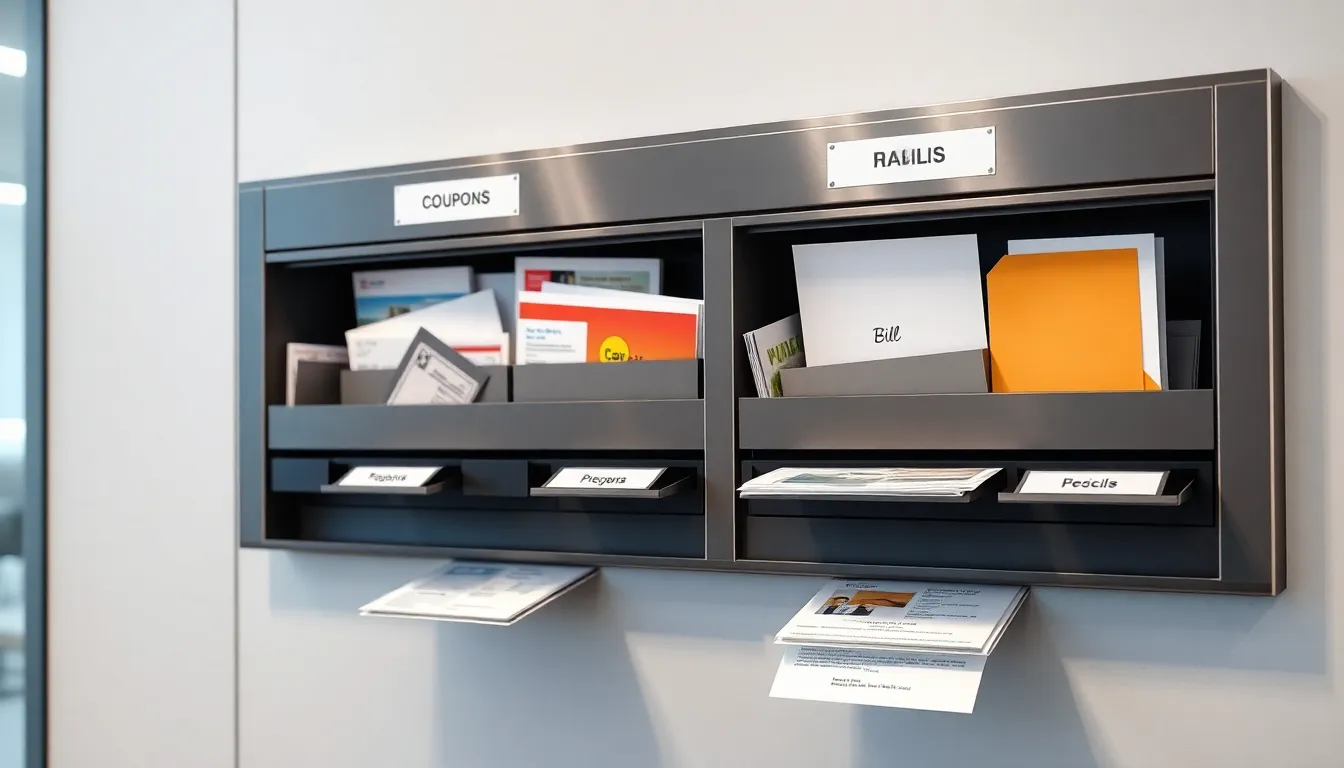When the leaky faucet becomes an impromptu waterfall and the creaky floorboards sound like a horror movie soundtrack, it’s time for tenants to know their rights. The right to repairs isn’t just a fancy phrase; it’s a crucial lifeline that can turn a rental nightmare into a cozy haven. After all, who wants to live in a place that feels more like a scene from a disaster movie?
Table of Contents
ToggleUnderstanding Tenant Right To Repairs
Tenant rights regarding repairs are crucial for ensuring safe living conditions. A tenant possesses the right to a habitable home, which includes functioning plumbing, heating, and electrical systems. Without these essentials, tenants face health and safety concerns.
Landlords carry the primary responsibility for maintaining the property and addressing repair requests promptly. Timeliness in responding to repairs varies by law, but many states require action within a reasonable timeframe, often within 30 days. If landlords neglect needed repairs, tenants may have options, including withholding rent or seeking repairs independently and deducting costs from rent.
Documentation plays a vital role in repair issues. Tenants should maintain records of repair requests and any communication with landlords. Keeping copies of emails and text messages helps reinforce claims when necessary. Furthermore, it enables tenants to demonstrate the urgency of repair needs.
Local and state laws determine specific rights and responsibilities related to repairs. Tenant rights often include protections against retaliation from landlords for reporting health and safety violations. Consequently, awareness of these laws empowers tenants to advocate for their rights confidently.
In cases where landlords fail to address severe issues, tenants may contact local housing authorities or seek legal assistance. Public agencies can provide resources to help tenants understand their rights further. Legal protections exist to ensure tenants can live in safe environments without undue stress from unaddressed repairs.
Fostering effective communication between tenants and landlords promotes a better living experience. Regular check-ins and open dialogue about maintenance needs can result in quicker resolutions. Encouraging collaboration helps maintain both a tenant’s quality of life and a landlord’s property value.
Legal Framework

Tenants’ rights to repairs arise from both federal and state regulations that outline landlord responsibilities. Understanding these legal structures is crucial for asserting rights effectively.
Federal Laws
Federal law provides a foundation for tenant rights, ensuring safe and sanitary living conditions. The Fair Housing Act prohibits discrimination in housing, supporting the principle that all tenants deserve habitable homes. Under this federal statute, landlords must comply with health and safety standards to avoid penalties. Additionally, the U.S. Department of Housing and Urban Development enforces rules that protect tenants from substandard housing conditions. Tenants can seek legal action under these laws when facing unsafe environments.
State Laws
State law supplements federal regulations by defining specific rights related to property repairs. Most states require landlords to maintain rental properties in a habitable condition. States often establish reasonable timelines for addressing repair requests, usually ranging from 24 hours for urgent issues to several days for non-emergency repairs. These laws may also include provisions for rent withholding if landlords fail to address necessary repairs. Tenants should familiarize themselves with their state laws to ensure enforcement of their rights.
Common Issues Faced by Tenants
Tenants experience various challenges regarding their right to repairs. Two of the most prevalent issues include delayed repairs and unresolved complaints.
Delayed Repairs
Delayed repairs pose significant frustration for tenants. When a landlord fails to act promptly on requests, issues can worsen, leading to more extensive damage and increased repair costs. Many states require landlords to address urgent repairs within 24 to 48 hours. Typical urgent repairs involve plumbing leaks, heating failures, and electrical hazards. Tenants often document their requests to ensure compliance with rental laws. This documentation serves as evidence if disputes arise. While landlords are responsible for timely repairs, tenants should follow up regularly to emphasize the urgency of their cases.
Unresolved Complaints
Unresolved complaints create tension between tenants and landlords. When maintenance issues go ignored, tenants may feel powerless and concerned about their living conditions. Common unresolved complaints relate to mold, pest infestations, and broken appliances. Communication plays a critical role; tenants should consistently remind landlords of their obligations. Landlords must address these complaints within a reasonable timeframe, as set by local laws. If complaints remain unresolved, tenants might consider seeking assistance from housing authorities or legal professionals. Keeping copies of all correspondence enhances tenants’ positions when advocating for their rights.
Responsibilities of Landlords
Landlords play a crucial role in ensuring the habitability of rental properties and maintaining a safe environment for tenants. They must address repair requests promptly, reflecting their duty to uphold living standards.
Duty to Maintain
Landlords hold the primary responsibility for maintaining rental units in a livable condition. Their obligations typically include repairing plumbing, heating, and electrical systems. Local and state laws often dictate specific maintenance standards. Any violation can lead to legal repercussions. Regular inspections can help landlords identify issues before they escalate. Tenants expect timely responses to repair requests, especially for urgent matters. If a landlord fails to act, tenants might seek assistance from local housing authorities.
Communication Obligations
Effective communication remains essential between landlords and tenants. Landlords must inform tenants about the status of repair requests and anticipated timelines for completion. Transparency minimizes misunderstandings and builds trust. Regular updates ensure tenants feel valued and respected. Documenting all communications can serve as evidence in case of disputes. Phone calls, emails, or text messages can all be appropriate channels for communication. A proactive approach leads to smoother resolutions and better relationships.
Tenant Remedies and Protections
Tenants possess various remedies and protections when it comes to repair issues. Understanding these options proves essential for effectively addressing concerns with landlords.
Reporting Mechanisms
Reporting mechanisms provide tenants ways to voice repair issues formally. Tenants should submit their requests in writing, clearly detailing the specific problems and any relevant timelines. Many local housing authorities maintain hotlines or online portals for submitting complaints about urgent issues, such as leaks or heating outages. Utilizing these platforms can facilitate faster responses from landlords. Recordkeeping is important; maintaining copies of submitted requests supports claims for further action if needed. When issues remain unaddressed, tenants can escalate their complaints for additional assistance.
Legal Actions
Legal actions represent a critical avenue for tenants facing unresponsive landlords. Options include filing a claim in small claims court for repair neglect or rent withholding based on uninhabitable conditions. Prior to taking legal steps, ensuring compliance with local statutes is vital, as they vary significantly by location. Legal assistance may become necessary for navigating tenant rights effectively. Additionally, tenants can request that courts order landlords to make essential repairs, reinforcing their right to a habitable living environment. Documentation of previous communications and repair requests strengthens cases during legal actions.
Understanding tenant rights to repairs is vital for maintaining a safe and comfortable living environment. Tenants should feel empowered to assert these rights and demand timely action from landlords. By documenting requests and maintaining open communication, they can foster positive relationships while ensuring their homes remain habitable.
When landlords neglect their responsibilities, tenants have legal avenues to address these issues. Familiarity with local and state laws can significantly benefit tenants in navigating repair requests. Ultimately, a proactive approach to repairs not only enhances tenants’ living conditions but also contributes to a more respectful landlord-tenant dynamic.







